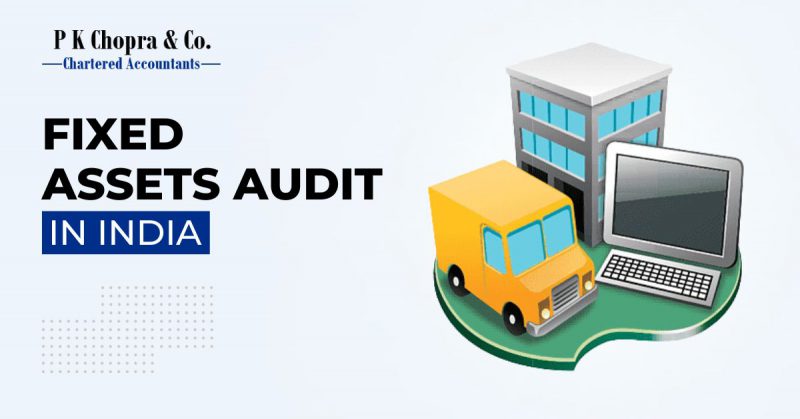Fixed Assets Audit in India
Fixed assets are the backbone of any organization, representing substantial investments made for long-term use in generating income. Conducting a thorough audit of fixed assets is crucial for ensuring transparency, accuracy, and compliance with regulatory requirements. In this article, we delve into the intricacies of fixed assets audit in India, shedding light on its significance, process, challenges, and the importance of professional assistance.
Importance of Fixed Assets Audit
Ensuring Accuracy in Financial Reporting
A comprehensive fixed assets audit guarantees the accuracy of financial statements by verifying the existence, condition, and valuation of fixed assets. It provides stakeholders with confidence in the reliability of financial information, facilitating informed decision-making.
Compliance with Regulatory Requirements
In India, various regulatory bodies mandate the auditing of fixed assets to ensure adherence to accounting standards and statutory provisions. Compliance with these requirements is essential for avoiding penalties and maintaining credibility in the business environment.
Understanding Fixed Assets
Fixed assets encompass tangible assets such as land, buildings, machinery, and intangible assets like patents and trademarks. These assets play a vital role in the production process and contribute to the company’s revenue generation over an extended period.
Objectives of Fixed Assets Audit
Verifying Existence and Ownership
The audit aims to confirm the existence of fixed assets listed in the company’s records and validate ownership rights. Physical verification and documentation review are conducted to ensure accountability and prevent misappropriation.
Assessing Valuation and Depreciation
Determining the fair value and depreciation of fixed assets is essential for accurate financial reporting and tax compliance. The audit evaluates the methods used for asset valuation and assesses the appropriateness of depreciation rates applied.
Evaluating Adequacy of Internal Controls
The audit assesses the effectiveness of internal controls related to fixed assets management, including procedures for acquisition, disposal, and maintenance. Identifying weaknesses in internal controls helps in mitigating risks of fraud, errors, and misstatements.
Process of Fixed Assets Audit
Planning Phase
The audit begins with meticulous planning, including the establishment of audit objectives, scope, and methodology. Preliminary assessment and risk identification are conducted to tailor audit procedures according to the organization’s specific requirements.
Execution Phase
During the execution phase, auditors conduct physical verification of fixed assets, examine supporting documentation, and test internal controls. Any discrepancies or irregularities are thoroughly investigated to determine their impact on financial statements.
Reporting Phase
The findings of the audit are documented in a comprehensive report, highlighting observations, recommendations, and corrective actions required. Management and stakeholders are provided with insights to enhance asset management practices and internal controls.
Compliance with Indian Regulatory Framework
In India, fixed assets audit is governed by regulations outlined in the Companies Act, 2013, and the Income Tax Act, 1961. Compliance with these statutes is imperative for companies to avoid legal repercussions and maintain transparency in financial reporting.
Challenges in Fixed Assets Audit in India
Complex Regulatory Environment
Navigating through the intricate web of regulatory requirements and accounting standards poses challenges for auditors. Ensuring compliance with evolving regulations demands continuous monitoring and upgradation of audit methodologies.
Lack of Standardization
The absence of standardized practices for fixed assets audit across industries complicates the process. Auditors often encounter discrepancies in asset classification, valuation techniques, and depreciation methods, necessitating customized audit approaches.
Importance of Hiring a Professional Firm
Engaging a reputable audit firm with expertise in Indian accounting standards is indispensable for conducting a thorough fixed assets audit. Professional auditors possess the requisite knowledge and experience to navigate regulatory complexities and deliver accurate, compliant, and value-added audit services.
Conclusion
In conclusion, fixed assets audit in India is a critical aspect of corporate governance and financial management. By ensuring transparency, accuracy, and compliance, organizations can safeguard their assets, enhance stakeholder trust, and mitigate risks. Embracing professional assistance from audit firms facilitates smooth conduct of audits, driving operational efficiency and business sustainability.
FAQs (Frequently Asked Questions)
- Why is fixed assets audit essential for businesses in India?
- Fixed assets audit ensures accuracy in financial reporting, compliance with regulatory requirements, and effective management of valuable assets.
- What are the primary objectives of fixed assets audit?
- The objectives include verifying asset existence and ownership, assessing valuation and depreciation, and evaluating internal controls.
- How does the regulatory framework in India influence fixed assets audit?
- The Companies Act, 2013, and the Income Tax Act, 1961, prescribe regulations governing fixed assets audit, emphasizing compliance and transparency.
- What challenges do auditors face in conducting fixed assets audit in India?
- Auditors encounter challenges related to the complex regulatory environment, lack of standardization, and evolving accounting standards.
- Why should companies consider hiring a professional audit firm for fixed assets audit?
- Professional audit firms offer expertise in Indian accounting standards, ensuring compliance, accuracy, and value addition in audit services.

